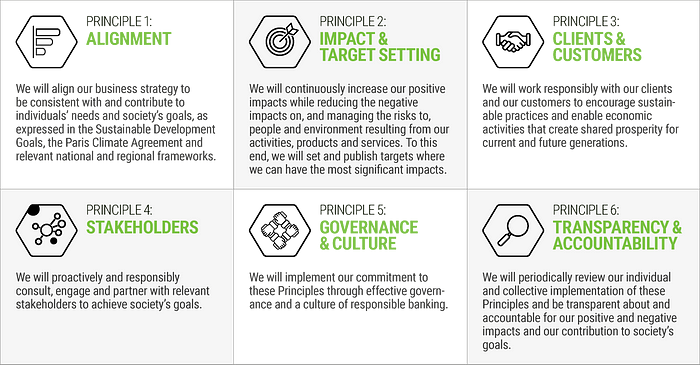1) The simple answer: because their customers do.

2) Customers will consider switching banks due to environmental reasons
Deloitte’s Better Banking Survey (2020) found that over three fifths of UK banking customers would leave their bank if it was linked to any social or environmental harm — even if it had the best offer. According to YouGov, half of consumers think they must do more to combat climate change.
Sustainability is becoming a sticking point for consumers and with it being easier than ever to switch your bank account, banks have a compelling reason to do better.
3) Customer centricity

Customers want their values reflected in the goods/services they use. In order to survive and thrive, banks need to adopt a customer-centric approach, as highlighted in last years PwC Banking Report.
57% of UK consumers are willing to pay more for environmentally-friendly products and this was even higher amongst millenials. The purchasing power of millenials is becoming particularly influential to retail banks, as this age group comes into their prime earning years. Traditional banks are struggling to retain this segment of customers, with one in three millenials saying they primarily bank with a challenger bank. Therefore, consumers wanting to do good for the environment can provide a fundamental source of growth for banks in the future.
4) Transparency is increasing
There now exists data to say to what extent banks are contributing to climate change- the Banking on Climate Change report by RAN investigates how much the top global banks finance fossil fuel activity. This information is accessible to consumers, with tools such as SwitchIt growing in popularity.

Whilst the majority of a banks’ environmental impact is typically via investment operations, retail banking is seen as an important way for large banks to enhance their reputation. Banks are well positioned to play a significant role in tackling climate change, providing an opportunity to build trust with their customers.
5) Stay ahead of the regulatory landscape
A third of the global banking industry, have opted to become signatories of the UN Principles for Responsible Banking. These are a framework for ensuring a banks’ strategy and practice across all business areas align with the vision society has set out for its future in the Sustainable Development Goals and the Paris Climate Agreement.

Principle 3 and 4 imply that banks agree to take a level of accountability in the actions of their customers, which should also include their retail customers.
There is an increasing pressure on banks to include the emissions of their clients activity in climate disclosures. Currently under Scope 3 accounting & reporting in the Greenhouse Gas Protocol, disclosures should currently include lending activities e.g. mortgages and loans and this could easily expand in scope.
For more articles similar to this please follow us on Linkedin: www.linkedin.com/in/envaluate

